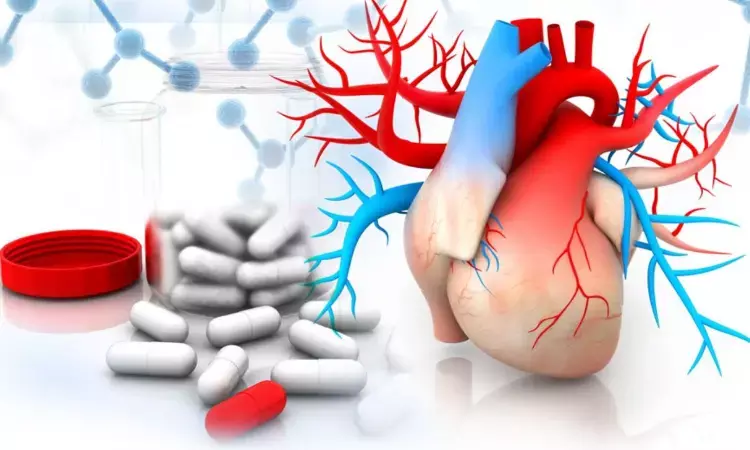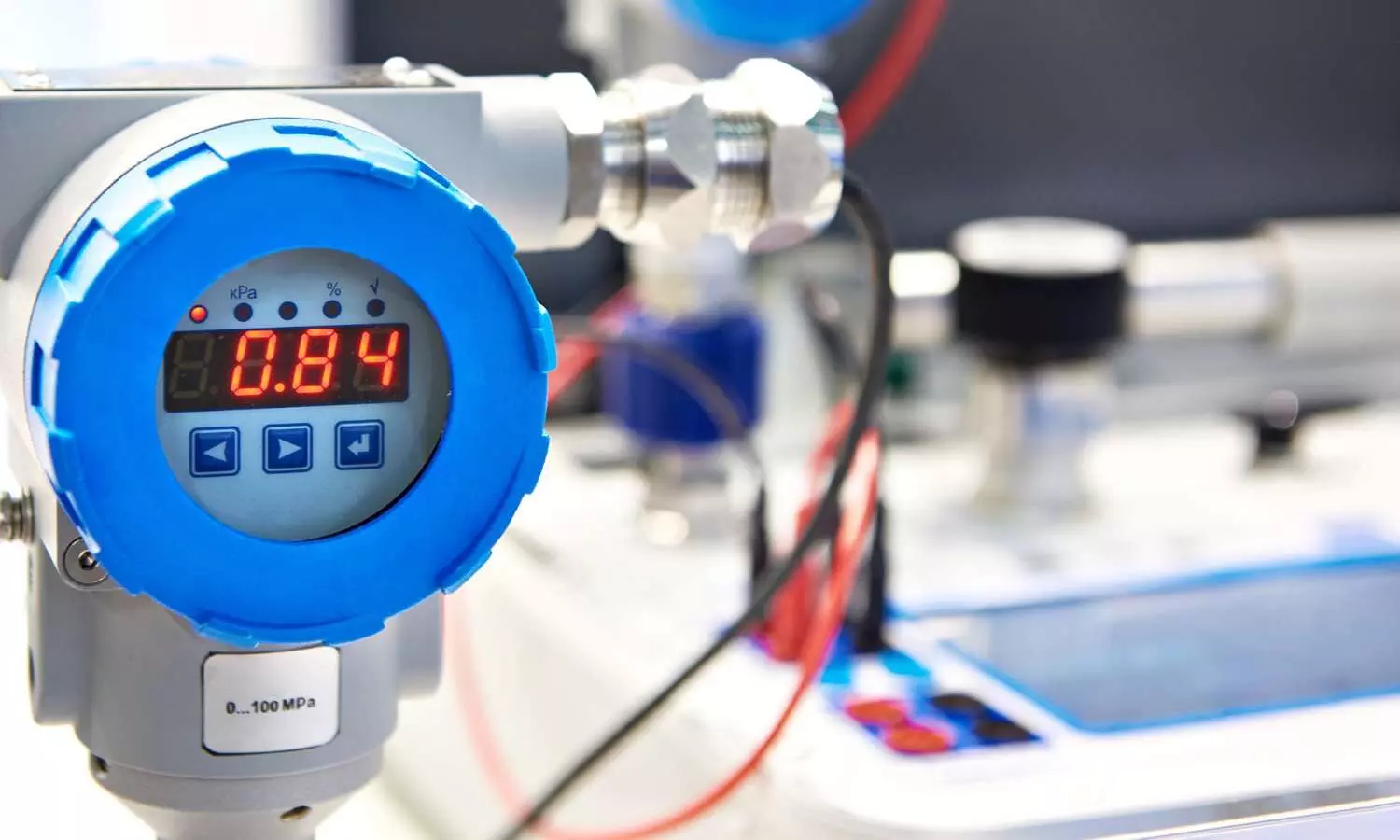- Home
- Medical news & Guidelines
- Anesthesiology
- Cardiology and CTVS
- Critical Care
- Dentistry
- Dermatology
- Diabetes and Endocrinology
- ENT
- Gastroenterology
- Medicine
- Nephrology
- Neurology
- Obstretics-Gynaecology
- Oncology
- Ophthalmology
- Orthopaedics
- Pediatrics-Neonatology
- Psychiatry
- Pulmonology
- Radiology
- Surgery
- Urology
- Laboratory Medicine
- Diet
- Nursing
- Paramedical
- Physiotherapy
- Health news
- Fact Check
- Bone Health Fact Check
- Brain Health Fact Check
- Cancer Related Fact Check
- Child Care Fact Check
- Dental and oral health fact check
- Diabetes and metabolic health fact check
- Diet and Nutrition Fact Check
- Eye and ENT Care Fact Check
- Fitness fact check
- Gut health fact check
- Heart health fact check
- Kidney health fact check
- Medical education fact check
- Men's health fact check
- Respiratory fact check
- Skin and hair care fact check
- Vaccine and Immunization fact check
- Women's health fact check
- AYUSH
- State News
- Andaman and Nicobar Islands
- Andhra Pradesh
- Arunachal Pradesh
- Assam
- Bihar
- Chandigarh
- Chattisgarh
- Dadra and Nagar Haveli
- Daman and Diu
- Delhi
- Goa
- Gujarat
- Haryana
- Himachal Pradesh
- Jammu & Kashmir
- Jharkhand
- Karnataka
- Kerala
- Ladakh
- Lakshadweep
- Madhya Pradesh
- Maharashtra
- Manipur
- Meghalaya
- Mizoram
- Nagaland
- Odisha
- Puducherry
- Punjab
- Rajasthan
- Sikkim
- Tamil Nadu
- Telangana
- Tripura
- Uttar Pradesh
- Uttrakhand
- West Bengal
- Medical Education
- Industry
Stress CMR accurately stratifies risk and prognosis of patients with stable chest pain and known or suspected CAD

New research revealed that in patients with stable chest pain stress cardiovascular magnetic resonance imaging (CMR) produced great diagnostic accuracy and gave solid prognostication. Stable chest pain patients with known or suspected coronary artery disease can be accurately diagnosed and risk-stratified using a combination evaluation of inducible myocardial ischemia and late gadolinium enhancement by stress CMR. The study results were published in the Journal JAMA Cardiology.
Coronary artery disease (CAD) is the foremost factor for cardiovascular (CV) morbidity and mortality globally. Recent guidelines suggest that Non-invasive imaging plays a crucial role. New recommendations suggest the use of stress cardiovascular magnetic resonance imaging (CMR) to detect ischemia and guide clinical decision-making in patients with a high intermediate pretest clinical likelihood of CAD. As the clinical utility of stress cardiovascular magnetic resonance imaging (CMR) in stable chest pain is still under discussion, and as there is uncertainty on the low-risk period for adverse cardiovascular (CV) events after a negative test result, researchers conducted a study to provide contemporary quantitative data synthesis of the diagnostic accuracy and prognostic value of stress CMR in stable chest pain.
Using prespecified combinations of keywords related to the diagnostic accuracy and prognostic value of stress CMR databases like the PubMed and Embase, the Cochrane Database of Systematic Reviews, PROSPERO, and the ClinicalTrials.gov registry were searched for potentially relevant articles. Based on the selected studies' evaluation of the CMR and its reported estimates of diagnostic accuracy and/or raw data of adverse CV events for participants with either positive or negative stress CMR results was carried out. A total of 3144 records were evaluated from which 235 eligible articles were included and after exclusions, 64 studies (74 470 total patients) published from October 29, 2002, through October 19, 2021, were included.
The review and analysis were carried out adhering to the PRISMA guidelines. The primary outcomes of measurement included the Diagnostic odds ratios (DORs), sensitivity, specificity, area under the receiver operating characteristic curve (AUROC), odds ratio (OR), and annualized event rate (AER) for all-cause death, CV death, and major adverse cardiovascular events (MACEs) defined as the composite of myocardial infarction and CV death.
Key findings:
- A total of 33 diagnostic studies pooling 7814 individuals and 31 prognostic studies pooling 67 080 individuals with a mean [SD] follow-up, of 3.5 [2.1] years were identified.
- Stress CMR yielded a DOR of 26.4, a sensitivity of 81%, a specificity of 86%, and an AUROC of 0.84 for the detection of functionally obstructive coronary artery disease.
- Stress CMR yielded higher diagnostic accuracy in the setting of suspected coronary artery disease or when using 3-T imaging in the subgroup analysis.
- Stress-inducible ischemia was associated with higher all-cause mortality, CV mortality, and MACEs.
- Late gadolinium enhancement (LGE) was associated with higher all-cause mortality, CV mortality, and increased risk of MACEs.
- There was less than 1.0% pooled AERs for CV death, After a negative test result.
Thus, the present study reaffirmed that stress CMR yields high diagnostic accuracy, robust cardiac prognostication, and accurate risk stratification in patients with stable chest pain and known or suspected CAD.
Further reading: Ricci F, Khanji MY, Bisaccia G, et al. Diagnostic and Prognostic Value of Stress Cardiovascular Magnetic Resonance Imaging in Patients With Known or Suspected Coronary Artery Disease: A Systematic Review and Meta-analysis. JAMA Cardiol. Published online June 07, 2023. doi:10.1001/jamacardio.2023.1290
BDS, MDS
Dr.Niharika Harsha B (BDS,MDS) completed her BDS from Govt Dental College, Hyderabad and MDS from Dr.NTR University of health sciences(Now Kaloji Rao University). She has 4 years of private dental practice and worked for 2 years as Consultant Oral Radiologist at a Dental Imaging Centre in Hyderabad. She worked as Research Assistant and scientific writer in the development of Oral Anti cancer screening device with her seniors. She has a deep intriguing wish in writing highly engaging, captivating and informative medical content for a wider audience. She can be contacted at editorial@medicaldialogues.in.
Dr Kamal Kant Kohli-MBBS, DTCD- a chest specialist with more than 30 years of practice and a flair for writing clinical articles, Dr Kamal Kant Kohli joined Medical Dialogues as a Chief Editor of Medical News. Besides writing articles, as an editor, he proofreads and verifies all the medical content published on Medical Dialogues including those coming from journals, studies,medical conferences,guidelines etc. Email: drkohli@medicaldialogues.in. Contact no. 011-43720751



